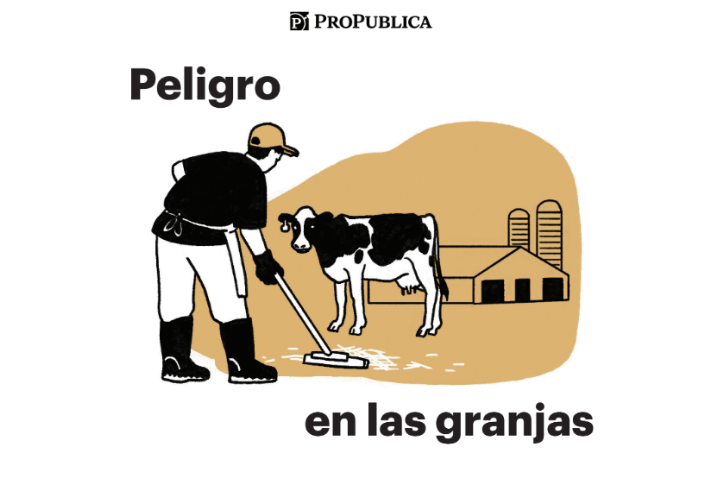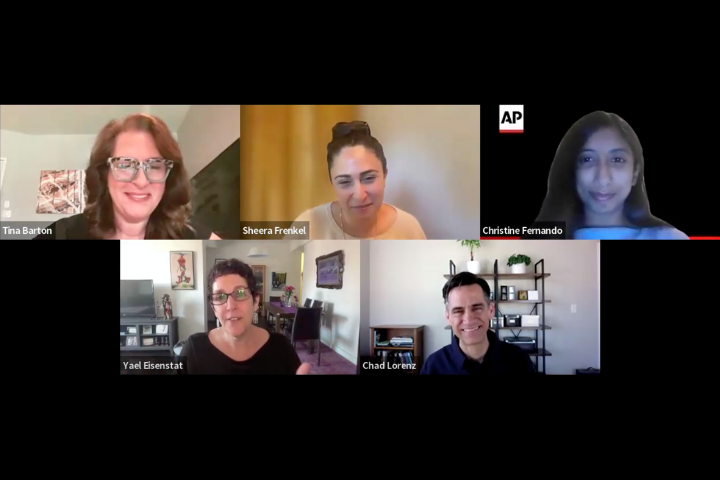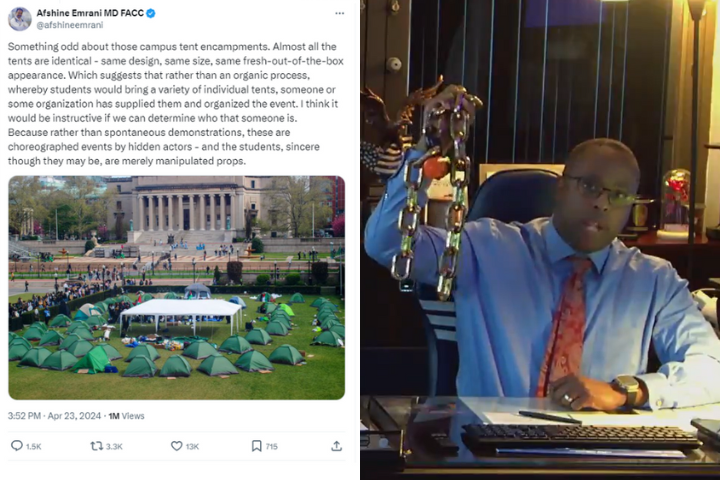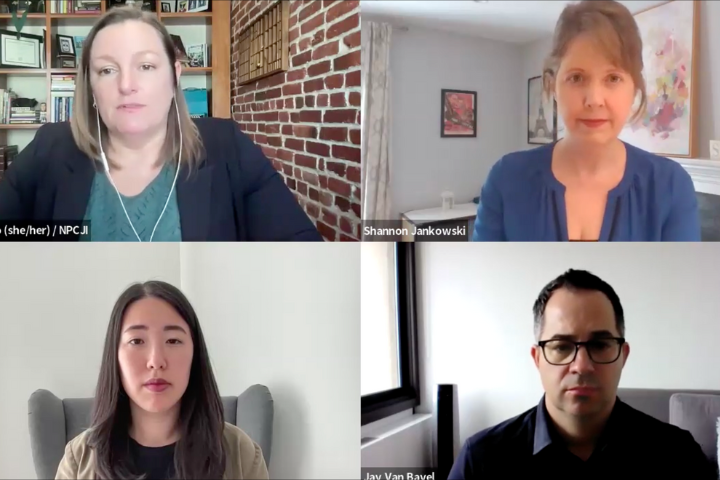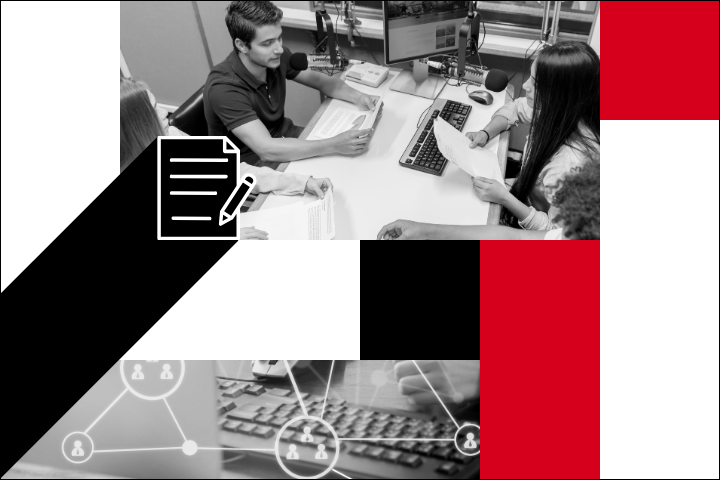It’s an election year, and disinformation is in the news once again.
The year started off with influence campaigns focused on both the Iowa caucuses and the New Hampshire primaries – including robocalls featuring an AI-generated “audio deepfake” simulating President Biden’s voice. Weeks later, deepfake images circulated widely of former president Trump purporting to smile with a group of Black voters. As election season continues, disinformation will only continue to proliferate — particularly when there’s breaking and dramatic news, such as the assassination attempt on former president Trump and President Biden’s decision to end his campaign and support Vice President Harris.
The goals of these disinformation campaigns are familiar: to smear an opponent for political gain, damage trust in our election system, and mobilize or suppress voter participation. Technological advances like generative AI, however, have made it easier than ever to produce and distribute deceptive content.
These escalating threats to our democracy come at a time when social media platforms have scaled back their content moderation programs, and aggressive legal and legislative pressure from politicians has put a chill on counter-disinformation research and coordination.
This moment calls for innovative approaches to tackling false information, and PEN America is supporting journalists, policy makers, and communities across the country in fighting disinformation. We invite you to get involved.
How we think about disinformation
PEN America is an organization dedicated to defending free expression, but that doesn’t mean we should tolerate disinformation.
Disinformation – defined as false information intended to deceive – interferes with people’s ability to make accurate and informed decisions, undermining a key precept of democracy. It heightens conflict, makes compromise more difficult, and draws our attention away from the most urgent challenges that we face as a nation. What’s more, the proliferation of deceptive information can undermine our marketplace of ideas by sowing distrust in our public figures and institutions.
In keeping with PEN’s free expression values, the Disinformation and Community Engagement program is focused on empowering the public. We’re especially interested in providing support at the local level, and that’s why we’re investing in community-level resilience against false and misleading information. Our areas of focus are three Sun Belt metropolises that are experiencing demographic and political changes and face growing national scrutiny: Miami, Dallas, and Phoenix.
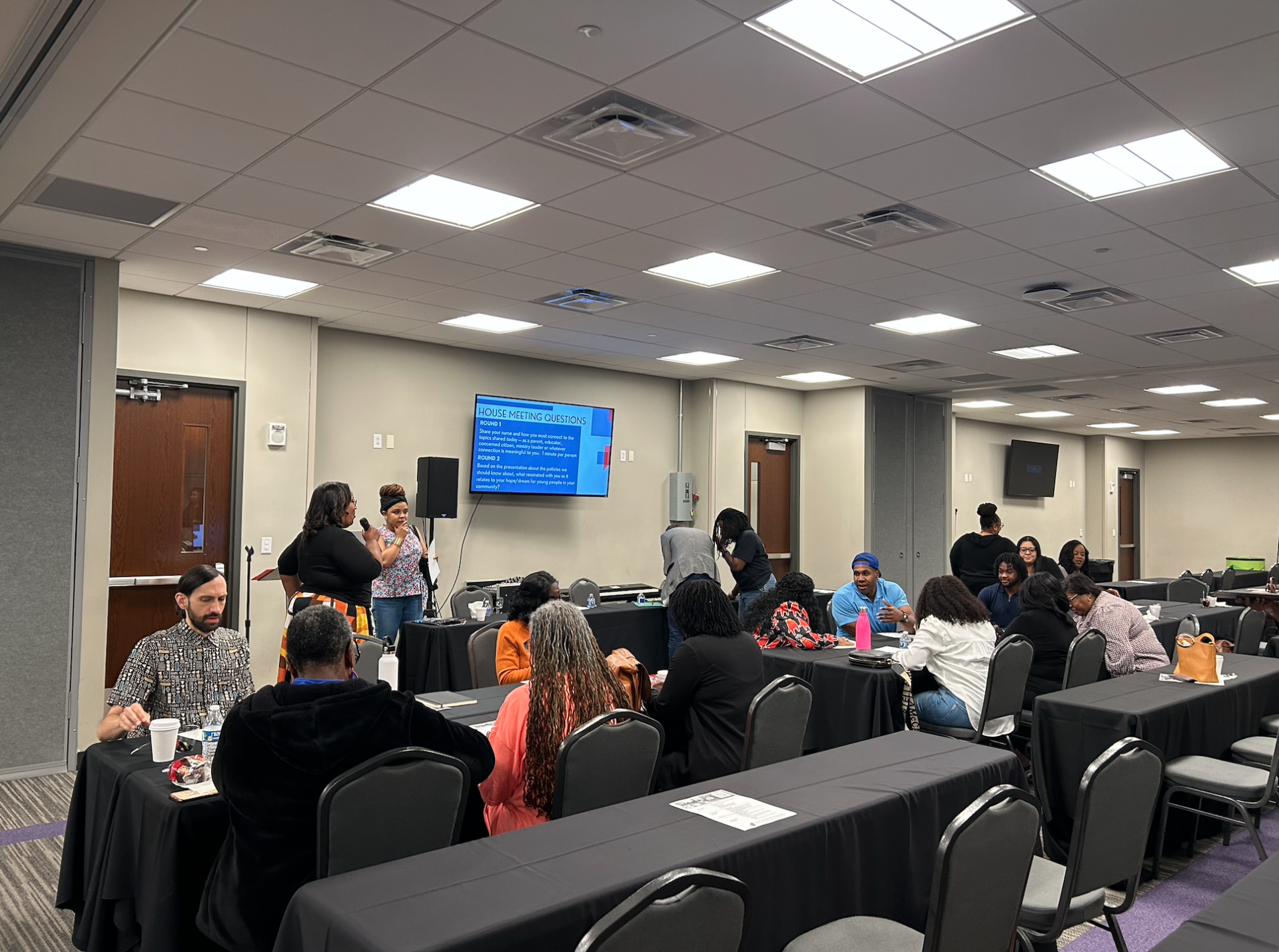
“It’s an all-hands-on-deck moment,” observes tech policy expert and democracy activist Yaël Eisenstat, “and I’m encouraged to see PEN America’s focus on community-level interventions to help build resilience to disinformation, especially in this very challenging election year.”
“PEN America is meeting people where they are,” Yaël continues, “and not just explaining the threats, but arming them with the tools needed to counter disinformation in their own communities. This is such important work with the potential to have real impact on the ground.”
Supporting anti-disinformation initiatives
As a key part of PEN America’s work countering disinformation, we’re supporting three outstanding organizations whose work we profiled in our 2023 report Building Resilience: Identifying Community Solutions to Targeted Disinformation. Through grant funding, we’re investing in proven – and emerging – nonpartisan initiatives for combating and offsetting the impact of false and deceptive information.
In Florida, Factchequeado will help Spanish-language journalists detect disinformation and verify content, while also producing accurate bilingual content for use in radio. Factchequeado will also develop a media literacy course that news consumers can complete through WhatsApp, a platform whose main users in the U.S. are Latinos.
In the Dallas area, the Texas Tribune will provide credible, nonpartisan information about voting via the Voting Help Desk, a text messaging line to guide voters through the voting process and provide answers to common questions about eligibility, registering to vote, casting a ballot, and interpreting election results. By listening to the needs of voters, partnering with additional media outlets and institutions, and piloting the use of WhatsApp, Tribune staff will expand the audience for the Voting Help Desk and deepen its impact.
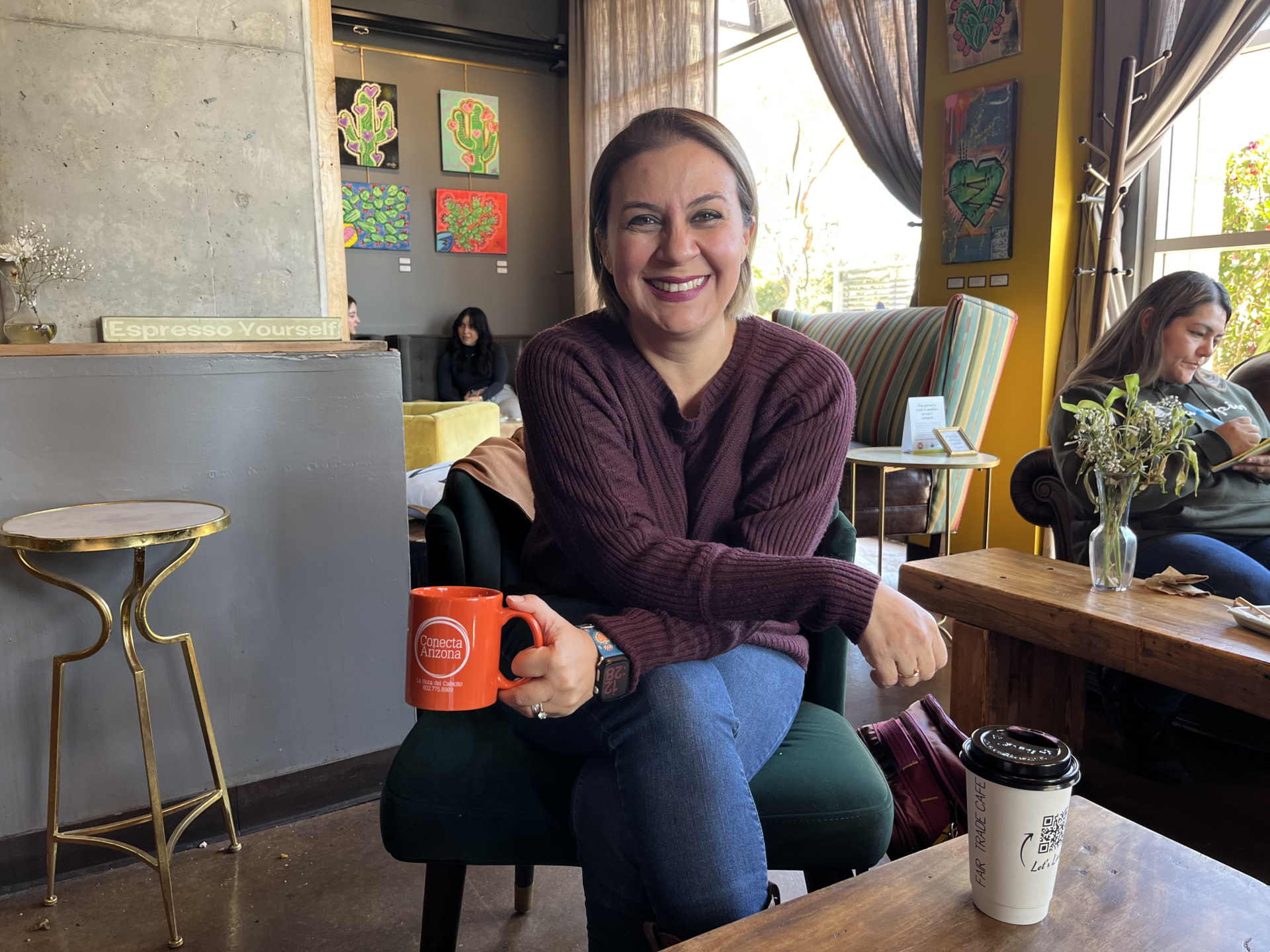
When it comes to Phoenix, Conecta Arizona will provide timely, culturally sensitive fact checking content in Spanish and will develop a network of subject-matter experts to provide authoritative, trustworthy information to meet the needs of mixed-status families, individuals with health care questions, and voters.
While these organizations are working on the initiatives and products PEN America is funding, we’ll surface learnings and resources from these grant-funded initiatives for broader adoption by other organizations and individuals doing counter-disinformation work.
Providing resilience trainings and resources
In a series of trainings for an audience of community leaders, local journalists, and everyday news consumers, we’ll share best practices and resources for boosting community resilience against disinformation.
Instead of sharing the familiar “media literacy 101” content, the trainings will go deep into topics including techniques for media monitoring, best practices for building relationships between community members and local journalists, and lessons learned from professional fact checkers. Expert guest speakers from journalism, academia, and community organizations will share strategies and resources for navigating the information environment. A central focus is to bring together experts and trusted messengers in conversation.
While the trainings are focused on audiences in Florida, Texas, and Arizona and will be “invitation only” to help ensure discretion and local specificity, we’ll be sharing many of the resources and best practices that we cover with the general public on our website.
Our training sessions also include newsrooms across the country, both large and small, where we discuss the disinformation threat landscape with reporters and editors. We share how advances in generative AI are turbocharging disinformation, outline the state of information online, detail the tactics used by “bad actors,” and provide practical tips for journalists facing disinformation in their daily work.
These training sessions follow a PEN America survey of 1,000 editors and reporters, which revealed that disinformation has significantly altered work practices for the vast majority of journalists. Developed in consultation with newsroom leaders and disinformation experts, our training sessions aim to equip journalists with tools to combat the growing number of deep fakes and falsehood-spreading campaigns. Our trainings are presented alongside the nonprofit Institute for Strategic Dialogue, which has long worked to combat polarization, online hate speech, and disinformation.
Our journalism and disinformation program also strives to share resources with journalists and provide guidance to newsrooms as needed.
Empowering trusted messengers
At a time when people trust friends and family more than the media, interpersonal connections can go a long way to spreading fact-based information in our communities. We have a plan for leveraging this trust in 2024.
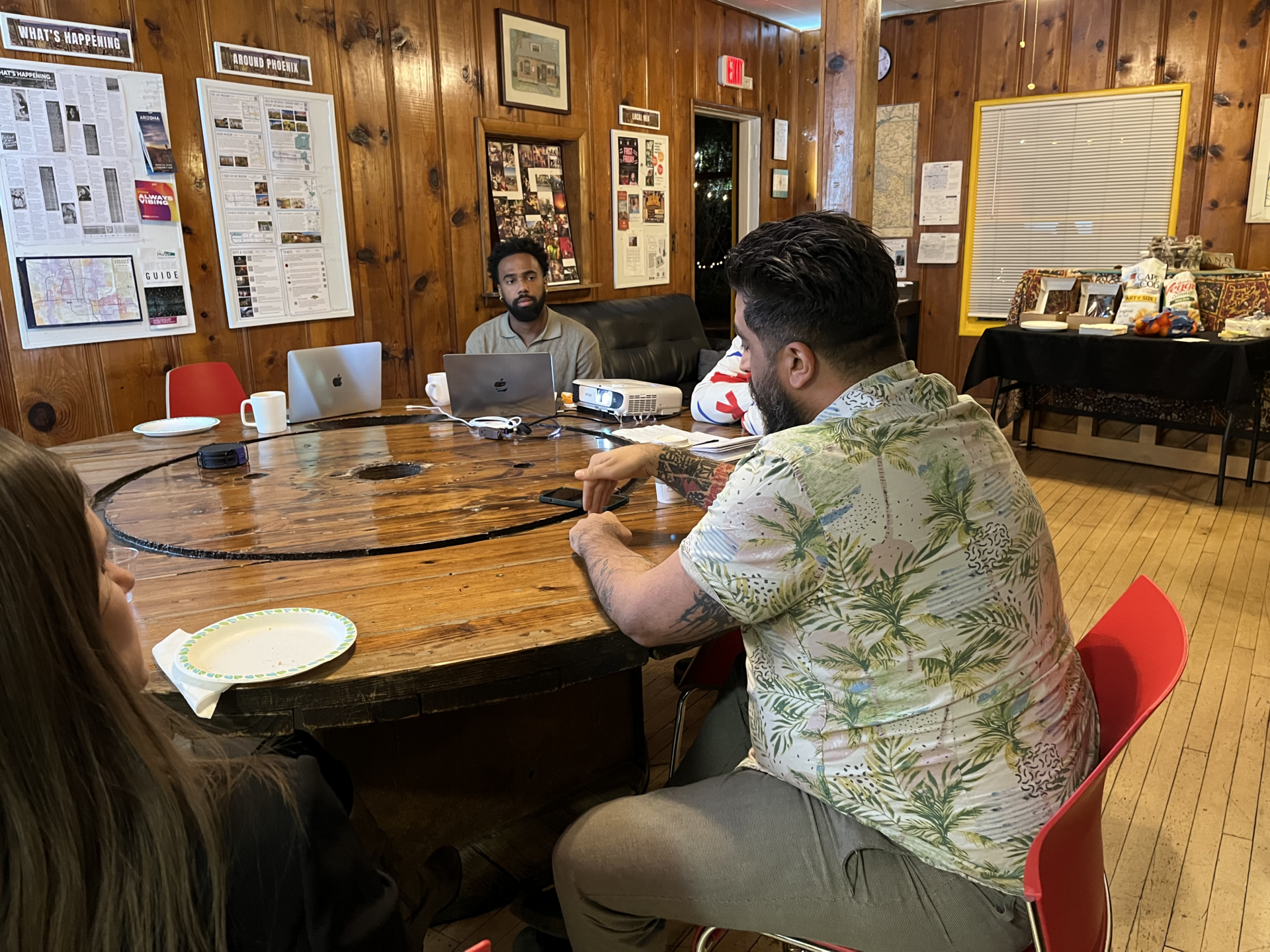
We’ve all had this experience: you’re talking to a friend, family member, neighbor, or coworker, and they share information that you know is not quite right. What do you do? Do you say something, or do you let it pass? If you say something, how can you avoid offending the person or making them defensive?
Using principles of relational organizing and grassroots engagement, we’ll be developing a network of people committed to sharing factual information and ready to navigate sensitive – but important – conversations with friends and family. The goal is to empower these messengers to engage in difficult conversations and to promote access to alternative perspectives that people otherwise wouldn’t get exposed to.
PEN America’s piloting of this type of relational organizing builds on its successes in other contexts, and we believe it will yield valuable learnings about what works – and what doesn’t.
Get involved
Disinformation is an “everybody” problem, so we invite you to get involved in this work no matter who you are and regardless of whether or not you live in the three states where this work is focused.
SIGN UP FOR INVITATIONS AND UPDATES
In the meantime, check your voter registration status and make a voting plan! And, if you’re a journalist, be sure to check out Facts Forward, PEN America’s new guide to help journalists combat disinformation.

